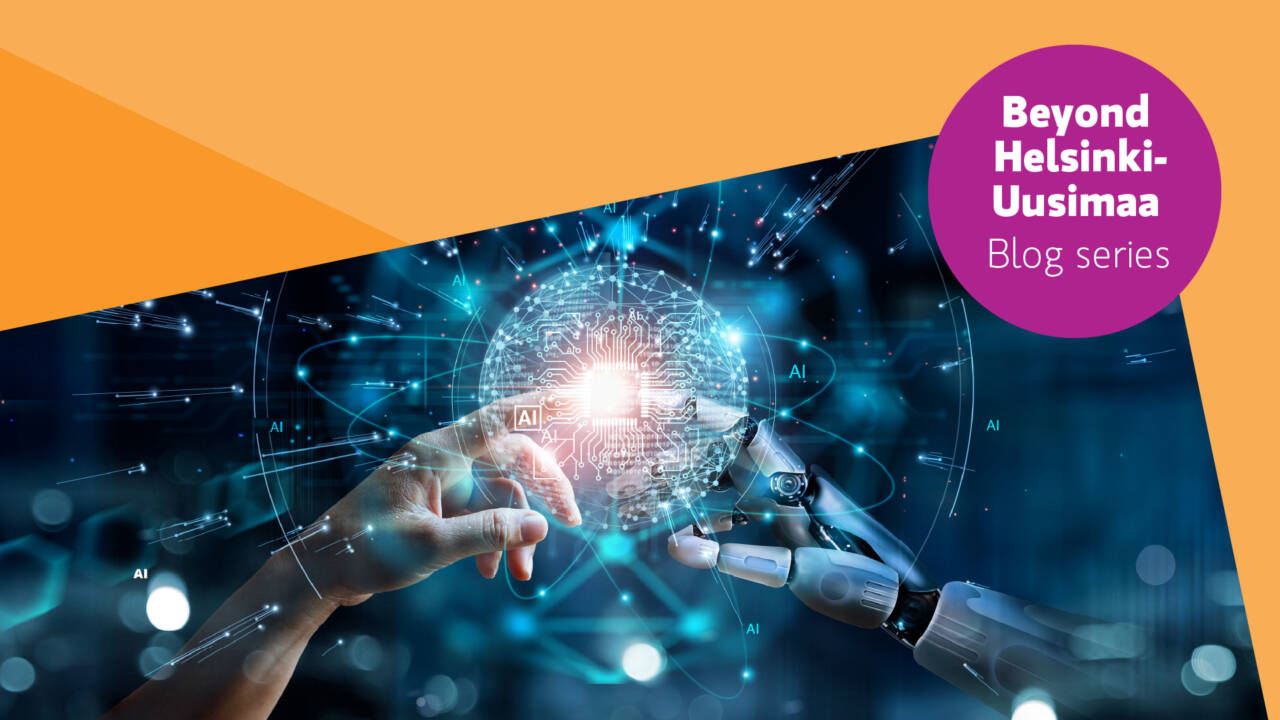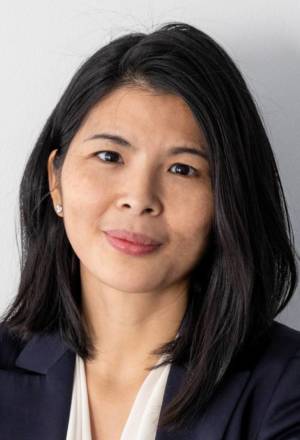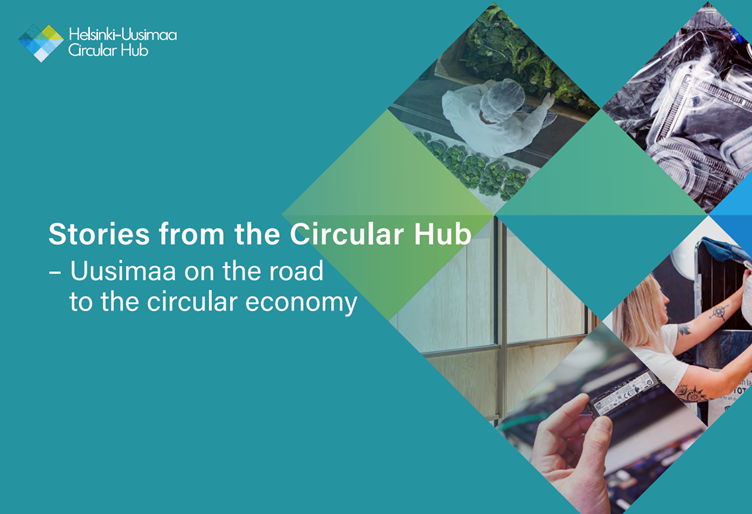Meet Aino: The First AI Native Generation in Helsinki-Uusimaa Region

Welcome to 2050. The world may look familiar, but beneath the surface, algorithms shape nearly every aspect of life. A new generation has grown with artificial intelligence (AI) as ordinary as electricity.
This is the first truly AI-native generation1(You are transferring to another service) raised in an ‘algorithmic future,’ a world where complex systems tailored to individual preferences guide decisions, deliver services, and influence relationships. These young people spoke to AI assistants before they could read, learned from both human and digital teachers, and developed their sense of self through curated online worlds shaped by invisible code.
As I imagine this future, I can’t help but ask: Is this the world we’re consciously preparing for? Is it one we welcome or one we must actively shape? For regional developers and innovation leaders, the deeper questions are: What kind of society are we enabling for the next generation?
What kind of society are we enabling for the next generation?
Meeting Aino: A Glimpse into the AI-Native Generation
Aino was born in January 2025 in the Helsinki-Uusimaa Region. By age twelve, she had grown up with a virtual assistant that helped her plan science projects and guided her through tricky social situations. Her teachers are both human and digital. She learns mathematics through an adaptive platform that responds to her in real time.
Aino is resourceful and digitally fluent. She knows how to search, summarise, and synthesise information quickly. But when faced with an open-ended question or problem, one that doesn’t have a ready-made AI answer, she hesitates. Like many in her generation, she’s used to instant feedback and personalised suggestions. Critical thinking takes conscious effort.
Aino’s teachers are both human and digital.
By 2050, Aino is in her mid-twenties. She surrounds herself with peers who share her values and entrepreneurial drive. She’s launched two micro-businesses, learned coding basics through an AI tutor, and earned a portfolio of micro-credentials instead of a traditional degree. She expects services, public and private, to be seamless, responsive, and personalised. She’s privacy-aware and cautious about how her data is used. Trust, for her, isn’t given; it’s earned through transparency.
Aino is a foresight persona – an imagined citizen of the future who helps us step into the shoes of an AI-native citizen. Through her story, we reflect on today’s choices and how they shape a future where AI serves the public good.
What kind of society are we preparing Aino to inherit? How do we ensure that AI literacy, ethical reflection, and human values remain central to the systems shaping our collective future?
AI and Media Literacy: A Democratic Competency
With this vision for the year 2050, I realise that AI literacy is not just technical; it is civic, too. In a world mediated by opaque algorithmic systems, media literacy becomes equally essential2(You are transferring to another service). Without it, people are vulnerable to misinformation, echo chambers, and manipulated narratives.
A 2023 study3(You are transferring to another service) surveying 4,000 Europeans found that while attitudes toward AI were generally positive, over half admitted to knowing little about it. This gap between optimism and understanding is risky. As systems become more embedded and less visible, their unchecked influence grows.
AI literacy must become foundational. This involves embedding it in formal education, as well as supporting lifelong learning through all forms of delivery models, whether in public libraries, physical classrooms, or digital platforms. We must enable all citizens, not just technical experts, to ask informed questions about who is behind the systems they interact with and how algorithmic decisions are made.
Learning and growing with AI
Today, AI is already in classrooms and our daily lives. Students use chatbots and recommendation engines – tools that change the ways we learn. A recent study4(You are transferring to another service) revealed a significant negative correlation between frequent use of AI tools and critical thinking, attributed to increased cognitive offloading. Younger participants exhibited higher dependence on AI tools and lower critical thinking scores compared to older participants. These results highlight the potential cognitive costs of AI tool reliance, emphasising the need for educational strategies that promote critical engagement with AI technologies.
A recent study revealed a significant negative correlation between frequent use of AI tools and critical thinking.
Learning, however, is not only cognitive; it is deeply social. As personalised AI platforms grow, children and adolescents may spend more time with screens than with peers. Their communication habits shift from spontaneous conversation to algorithm-curated dialogue. The result is a paradox: constant connectivity, yet an increased risk of social isolation.
From my child, I see how young kids form their identities in digital ecosystems shaped by algorithms. Their friendships, information sources, and self-image are mediated through systems optimised for engagement rather than well-being. We must strengthen the skills of privacy-consciousness and media literacy in them and ensure that public and private AI systems offer not only personalised experiences but also inclusive and human-centred digital spaces.
To prepare for this, classrooms will not just be users of AI, but as spaces that question it. Students should be able to build models, test assumptions, and reflect on their consequences. Educators need support in guiding conversations on digital ethics, mental health, and the societal effects of AI. Across Europe, we must continue to promote technical literacy alongside empathy, collaboration, and a sense of belonging in schools, homes, and workplaces. These human capacities will only grow in value as automation expands.
The Future of Work: Shifting Values, Shared Responsibility
We already know that by 2050, the labour market will look fundamentally different. Many roles will be transformed or redefined. Most workers are expected to switch careers multiple times, upskilling through AI-powered learning tools.
According to the OECD, 27% of high-automation jobs – involving repetitive and routine tasks, such as data entry, payroll processing, translation, or basic customer support – are among those most at risk of automation. Meanwhile, professions that rely on empathy, critical thinking, ethical judgment, and complex decision-making, such as education, healthcare, and the creative industries, are more likely to be augmented by AI rather than replaced. A recent example from IBM confirms this transformation.5(You are transferring to another service) After cutting several hundred positions in administrative roles, the company increased hiring in software development, sales, and client-facing roles, fields where human judgment, creativity, and interpersonal skills are irreplaceable.
Beyond these shifts in job roles, there are also shifts in value.
Beyond these shifts in job roles, there are also shifts in value. The AI-native generation will prioritise flexibility, work-life balance, and purpose.6(You are transferring to another service) Workplaces and public policy must reflect these. AI can support this by offloading routine tasks and enabling creative, meaningful work, but we must build a new social contract that guarantees inclusivity, opportunity, and dignity.
Helsinki-Uusimaa: Leading a Human-centred AI Transformation
Many forward-looking initiatives in the region are already striving to build a responsible and transparent society for the first AI natives. City of Helsinki AI Register7(You are transferring to another service) publicly lists the city’s algorithmic systems and explains how they work. The “Elements of AI” course, a free online resource, was created by the University of Helsinki and MinnaLearn (formerly part of Reaktor) in 2018. It aims to make AI knowledge accessible to the public by offering a practical and easy-to-understand introduction to the field.”8(You are transferring to another service) In 2023, the course had reached over a million people from 170 countries. Its follow-up, Ethics of AI9(You are transferring to another service), helps public servants and professionals navigate AI’s societal impacts.
At the same time, research programmes like the University of Helsinki’s Reimagining Public Values in Algorithmic Futures project10(You are transferring to another service) study how algorithms interact with and affect public values. The empirical findings provide a solid foundation for further developing the policy and future investments.
These are local successes, offering models for Europe and reminding us that responsible AI begins not only in Brussels but in classrooms, libraries, and city halls.
They offer models for Europe, reminding us that responsible AI starts not only in Brussels, but in classrooms, libraries, and city halls.
Planting seeds for a desirable future
At the EU level, the AI Act and investment initiatives, like the Digital Europe Programme, are establishing a comprehensive framework to support the development and deployment of trustworthy AI across the continent. In Finland, the Strategic Research Council (STN) has supported major research on AI’s societal implications through its Security and Trust in the Age of Algorithms (SHIELD)11(You are transferring to another service) programme.
While these top-down frameworks are essential, to ensure an AI-powered society of 2050 builds on shared values of democracy, inclusion, transparency and trust. The future must also be shaped from the ground up. Local and regional actors – cities, schools, universities, regional authorities, and innovation hubs – play a crucial role in building a human-centric society. Beyond the region, efforts must be continuously made in
- Making AI and media literacy mandatory in all education systems – from primary school to higher education and lifelong training.
- Supporting civil servants and educators with training in ethical and transparent AI implementation.
- Facilitating youth engagement in futures thinking and digital governance.
- Creating inclusive digital participation platforms where citizens can engage with algorithmic systems.
- Ensuring transparency and accountability in AI platforms, with explainable decision-making and collaboration to uphold public trust.
- Investing in regional innovation ecosystems, including research, cross-sector collaboration, and infrastructure pilots prioritising trustworthy, human-centric AI.
Each of these is a seed. If nurtured, it can grow into a fairer, more resilient, and AI-ready society. This may sound optimistic, or even utopian, but I believe it’s a future worth striving for. After all, the algorithmic society of 2050 is not a given; it’s something we must actively shape.
That’s my vision. What’s yours?
This is the first in a three-part series exploring the impacts of artificial intelligence on society, environment, and competitiveness. In this article, we focus on how AI is shaping human behaviour, education, and daily life.
Acknowledge
My warm thanks to Professor Minna Ruckenstein and her research team at the Consumer Society Research Centre, University of Helsinki, for sharing their inspiring work on emerging technologies in society.
Beyond Helsinki-Uusimaa
Beyond Helsinki-Uusimaa is a blog series that takes a closer look at the megatrends, initiatives, partnerships, and frameworks shaping the Helsinki-Uusimaa Region beyond its borders. The series explores why and how the region is positioning itself as an influential player within EU networks and global innovation ecosystems, now and in the future.

Christine Chang
The writer works as a Senior Advisor on EU Affairs. With over a decade of experience in Taiwan, the USA, and Finland, she leads EU-funded initiatives, driving sustainable growth and innovation in Helsinki-Uusimaa and across Europe.
Contact information:
+358 44 353 3014, christine.chang@uudenmaanliitto.fi
Take also a look at these
 News
News
1.7.2025
Helsinki Regional Council committing to green deal agreement: reducing the use of natural resources to the level of 2015
Circular economy is no longer a mere environmental accomplishment - it is also about competitiveness, security of supply and generally, savings. To promote a sustainable resource-wise future, the Helsinki-Uusimaa Regional Council has joined a regional green deal for circular economy. The green deal is a voluntary commitment in which the participating municipalities are offered support for concrete actions and gives them new opportunities to find solutions and start pilot projects.
 News
News
26.6.2025
Stories from the Circular Hub – Helsinki-Uusimaa on the road to circular economy
More and more sectors are now furthering a transition to circular economy. The Helsinki-Uusimaa Circular Hub was an import cooperation platform for circular economy solutions in the Helsinki-Uusimaa Region, founded in 2023. Highlights from the first project years of the Circular Hub have now been put together in the publication Stories from the Circular Hub, raising both the updates of the sectors and the actors of the regional Hub.